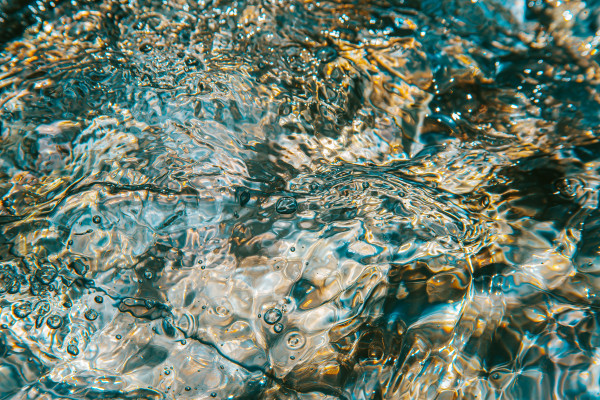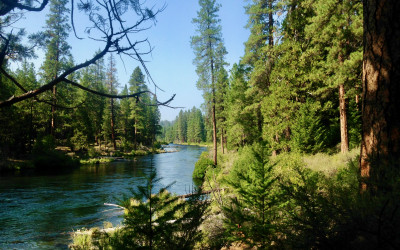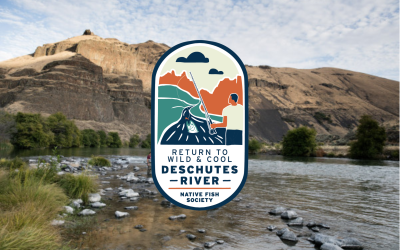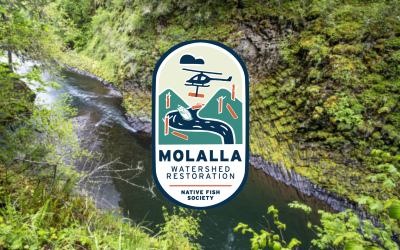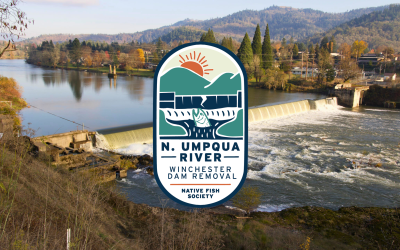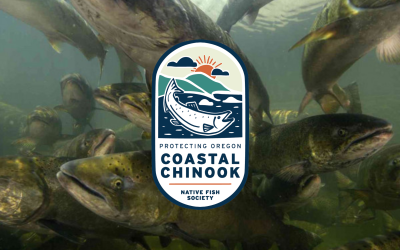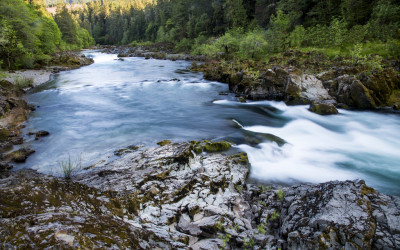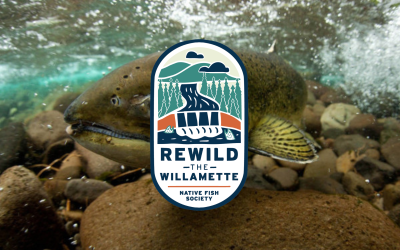- Intro
-
We're sharing stories of wild, native salmon and trout populations that are flourishing in the absence of hatchery programs: either because a hatchery program never existed or has been removed. If you would like to contribute to this collection, please fill out the form at the bottom of the page.
Celebrating Wild Abundance: Case Studies of Wild Fish Resilience
- Intro
-
Oregon’s Deschutes River is home to a diversity of native anadromous and resident fish, however, this precious resource is under threat. Non-native fish species, poor water quality, and human impact have all taken a toll on the river, leaving its future uncertain. But there is hope. Native Fish Society is invested in our mission to restore the lower Deschutes River to its former glory, reviving its wild, native fish population and improving water quality for future generations.
Deschutes: Return to Wild & Cool
- Intro
-
Habitat restoration is essential to the survival and recovery of important wild fish populations, such as spring Chinook salmon, winter steelhead, and Cutthroat trout, that call the Molalla River home. By restoring degraded areas and reconnecting critical spawning and rearing habitats, we can create more suitable habitats for wild fish to thrive. This can help to increase the size and health of wild fish populations, improve water quality, and enhance the overall ecological health of the river. Habitat restoration can also provide valuable benefits for other species and the surrounding community, such as improved water resources, increased recreational opportunities, and a more resilient ecosystem. By investing in habitat restoration, we can help to secure the future of wild fish in the Molalla River and support a healthy, productive ecosystem for generations to come.
Molalla Watershed Restoration: Reviving a Wild Fish River to its Former Glory
- Intro
-
The North Umpqua River and its wild fish are invaluable public treasures for our community and our state. For decades, these resources have been diminished by Winchester Dam, a structure whose sole purpose is to provide recreation for a few private homeowners. The dam owners, Winchester Water Control District, have failed to maintain the structure for the past 30 years. This neglect has resulted in major infrastructure problems that threaten our fish, water quality, and community safety. In 2023, attempted dam maintenance resulted in the mortality of hundreds of thousands of Pacific Lamprey, water quality violations, and blocked volitional fish passage. But there is hope. Native Fish Society is invested in our mission of restoring the North Umpqua River to its former glory, reviving wild, native fish population and returning the river to a free-flowing state, providing unimpeded access to more than 160 miles of cold water habitats for native fish.
North Umpqua River: Winchester Dam Removal
- Intro
-
Spring Chinook Salmon (also referred to as springers) are an essential species to the rivers of the Oregon Coast. Not only are they a keystone species in the ecosystem, playing a vital role in maintaining the health of the river and its food web, but the spring Chinook Salmon run has cultural and spiritual significance for local tribes and communities, who have relied on the fish for sustenance for thousands of years.
Protect Oregon Coast Springers
- Intro
-
The North Umpqua River and its wild fish are invaluable public treasures for our community and our state. Wild fish species, such as summer steelhead, play a critical role in the ecosystem of the North Umpqua River in Oregon. They provide a source of food for other animals, help to maintain water quality, and serve as indicators of the overall health of the ecosystem. By protecting and restoring wild fish populations, we can ensure the continued health and productivity of the North Umpqua River and its ecosystem. However, native fish populations in the North Umpqua River face significant threats due to hatchery fish that are putting their survival at risk. To protect these important species, it is important to reduce the number of hatchery releases, implement sustainable fishing practices, and conserve critical habitats to support healthy populations of wild, native fish in the North Umpqua River.
Reviving Wild Abundance: An All-Wild Steelhead North Umpqua River
- Intro
-
Native Fish Society is fighting to recover Oregon's most imperiled wild fish by building a groundswell of public support to advocate for effective fish passage at the 13 federally owned and operated dams in the basin. And we are holding the management agencies accountable in court, assuring that they take action now to provide relief to struggling populations and ensuring that they develop and implement a long-term plan to recover the species.
ReWild the Willamette
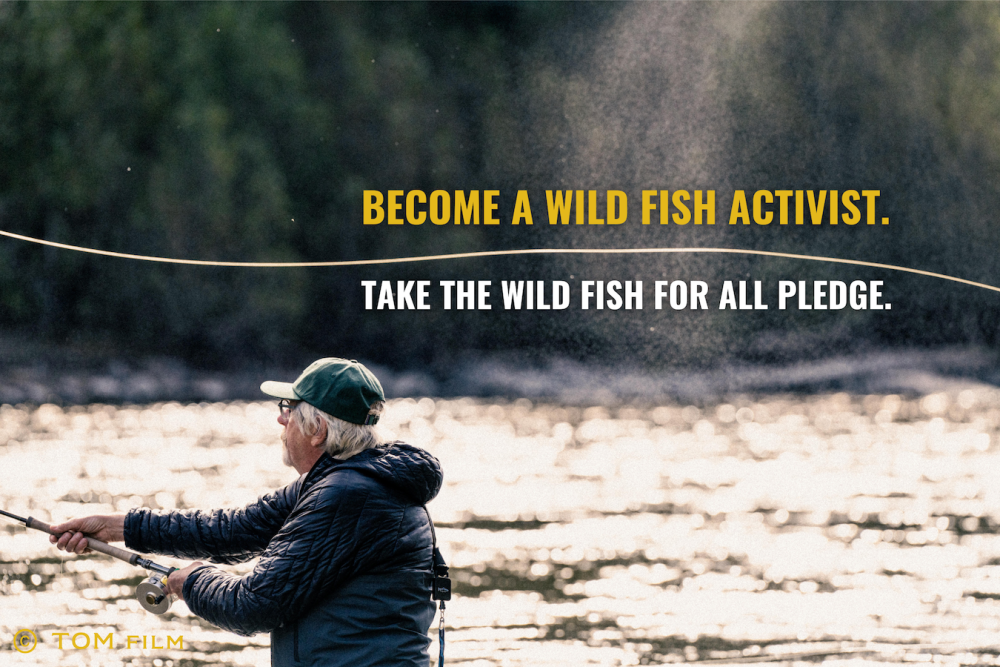
Show your wild fish passion - Join the call to action
Until all our Pacific Northwest communities enjoy healthy homewaters with abundant wild fish, we’re asking you to take the pledge and join with local voices, take collective action, and advance science-based solutions to the root challenges facing native fish. Take the Wild Fish For All Pledge today!
Looking for past campaigns?
View older campaigns that Native Fish Society no longer actively works on.
View More Campaigns